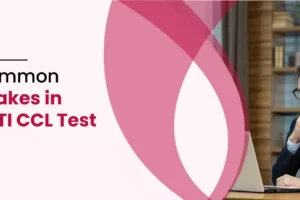
8 key qualities of a good NAATI CCL interpreter
Wondering how to be the finest NAATI CCL interpreter? Or improve your interpretation skills? Clap! clap! You’ve landed at the right place. In this article, we will discuss some key qualities of a good NAATI CCL interpreter.
The National Accreditation Authority for Translators and Interpreters, or NAATI for short, is a test to maintain the language standard amongst the English-speaking public in Australia.
NAATI has many applications, but, as you would expect, most people who are willing to migrate to Australia with a skillset of a translator go through this test.
Of course, the NAATI interpreter test is more popular with its benefits. Let’s look at some of them below.
However, you cannot take the NAATI CCL Test and start working as an interpreter. NAATI CCL certification is not professional.
You need to clear a separate test before working as an interpreter.
What is it like being a NAATI CCL interpreter?
After clearing your test as an interpreter, you will have a chance to travel places, meet new people, and learn about different cultures.
Likewise, as a NAATI CCL interpreter, your job is to help break down communication barriers.
Of course, the translator or interpreter job market opportunities are also growing, and data suggest that the growth is worth more than 46% per annum for the decade ending in 2022.
Remember that it’s a well-paying job, especially in Australia, where skill-based jobs are harder for non-native people.
8 key qualities of a good NAATI CCL interpreter
So yes, there are many perks to becoming a NAATI CCL interpreter. But what does it take to become one?
For that, we’ve listed 8 key qualities of a good NAATI CCL interpreter. Please read it thoroughly.
1. Be a good listener
To interpret someone else’s language, you must first understand what they are attempting to say, which requires careful listening. You can only interpret the meaning and message after listening very carefully.
2. Expand your vocabulary
Imagine a scenario: you are on a stage in front of a large audience, and you understand what the primary speaker is trying to express, but you are at a loss for words and encounter an awkward silence.
Scary. Right? Try working on your vocabulary to avoid this type of situation.
3. Research
Conducting proper research can avoid many possible difficulties. Suppose you are interpreting fashion design, and research before attending the event. Learn the terminology so that others can understand.
Understand that your ultimate goal is to make people understand more than interpret.
4. Experience
Gaining experience will assist you in becoming a proficient and powerful interpreter. Do internships, whether for free or for a less fee.
If you’re new to it, don’t worry. Everybody learns from experience.
Every interpreter you admire has gone through this and overcome all of the difficulties they confronted initially.
5. Get a NAATI CCL certificate
Test yourself, enroll in classes, take the NAATI CCL test (credential community language ) examinations, and earn a certificate. It will assist you in moving closer to your goal of becoming the best interpreter.
Furthermore, recruitment will be easier for you if you obtain the certificates.
6. Study local cultures
Due to the inconsistencies across languages and cultures, it is possible that the literal meaning of a word spoken differs from what it truly means. As a result, you need to understand the culture of the speakers of a language to interpret it precisely.
Because of differences in accent, tone, or speaking style, it can be challenging to understand what the examiner is saying. Therefore, Study the culture of that place to prevent that.
7. Don’t panic in a difficult situation
Not all speakers are courteous and considerate, and some speakers may have anger management issues, be harsh, or speak quickly. However, as an interpreter, you maintain your cool and manage the situation rationally.
Identify your coping mechanism, such as taking a deep breath or anything that works best, and cope with yourself cleverly and sensibly. Panicking and becoming anxious is not a solution.
8. Practice
It’s no surprise that practice makes perfect. Practice by yourself. Listen to audio or view videos and try to interpret what you hear.
Furthermore, you can practice interpreting random conversations at home or when you’re out with your friends.
Learn More: NAATI CCL test structure and marking breakdown
Conclusion
Hence, there are no shortcuts to becoming a flawless interpreter. Proper experience, a good command of the language, preparation, research, good listening ability, and vocabulary are all required. All of this is possible if you are consistent and practice every day.
On a personal note, if you’re considering taking the NAATI CCL test considering taking a test date and bracing yourself with a NAATI CCL certificate, you can join us.
Furthermore, CCLHUB provides the best NAATI CCL course materials, mock tests, and one-on-one coaching for test candidates.
Also, we provide a free demo session and test examples to give you an idea of how the CCL Test works.
FAQ
What is the NAATI CCL test?
The NAATI CCL test assesses your ability to communicate at a community level between two languages (English and another language).
What are the most important language skills for interpreting?
An extensive vocabulary and excellent written and verbal communication skills are a must. An interpreter should be able to speak just as well, and preferably better, than a native speaker.
What does a NAATI CCL language interpreter do?
NAATI CCL interpreter can accurately turn the message from the source language into the target language. This is done without any additions or misleading factors that alter the intended meaning of the message from the speaker.
Why and who takes the Credentialed Community Language (CCL) Test?
The CCL Test is generally taken by applicants looking to lodge a point-based visa application. After successfully passing the test, applicants are awarded five bonus PR points. Moreover, you can refer to these bonus points as Credentialed Community Language Points.



